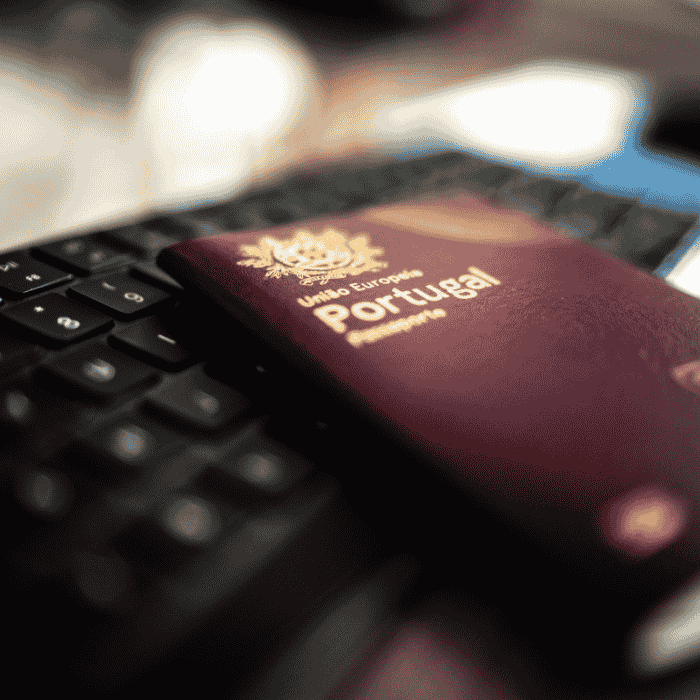D4/D5 Portugal Student Visa Study in Portugal with Expert Support
Comprehensive guide to Portugal student visas (D4 & D5) for international student. Covers eligibility, academic and language requirements, documents, application steps, financial proof, visa duration/renewal, and post-study pathways. Learn how MetConnect LDA’s Education Support services can assist you at every step – from admission guidance and document translation to visa filing and post-arrival integration. Book a free consultation today!

Portugal Student Visa (D4 vs D5): Overview
Portugal offers two main student visa categories for non-EU/EEA nationals studying more than 90 days: the D4 (Student Visa) and D5 (Study & Research Visa). The D4 visa is a long-term study visa for degree programs and internships, while the D5 visa is tailored to postgraduate research and academic projects.
In practice, any full-time bachelor’s, master’s or doctoral program (or exchange/internship) in Portugal generally uses the D4 visa. The D5 visa is intended for specialized cases (for example, PhD research or faculty exchanges) and is valid for the length of the academic activity. Both visas require a residence permit after arrival.
Eligibility for a Portugal Student Visa
Any non-EU/EEA/Swiss citizen intending to study in Portugal for more than 3 months generally needs a national student visa (Type D). Citizens of visa-exempt countries (e.g. USA, Canada, Australia, UAE) can enter for up to 90 days without a visa, but must apply for a student visa if the course exceeds 90 days.
In all cases, you must have been accepted by a recognized Portuguese university or school and plan to attend a full-time academic program. Portugal’s immigration rules also require applicants to be legally admissible (no criminal record), have valid travel and health insurance, and prove they can finance their stay. Portuguese-speaking nationals (e.g. Brazilians) admitted to a higher education institution are even exempt from proving financial means.
D4 Visa vs D5 Visa: Who Should Apply?
Note: some older sources described D5 as for student transfers or short courses, but current guidelines frame it as a research visa. Always confirm with your embassy whether D4 or D5 is correct for your program.
Practical Tip: If in doubt, consulates usually advise D4 for standard degree studies and D5 for research. MetConnect LDA’s advisors can review your case and ensure you select the visa type that matches your academic plan and residency goals
Academic & Language Requirements
To qualify, you must first meet the university’s academic criteria. This means having the required educational background and exam scores for your intended program. Once admitted, the university issues an acceptance letter or enrollment certificate, which is central to the visa application.
Required Documents for Your Student Visa
When applying, you must assemble a comprehensive document package. Exact requirements vary by consulate, but typically include:
Application Process Step-by-Step
The student visa process involves both the Portuguese institution and the embassy:
Processing Times: Expect 4–8 weeks typical in busy embassies, up to 3 months in some cases. Applying as soon as you have your acceptance letter is strongly recommended. MetConnect LDA’s advisors can even liaise with embassies to expedite appointments and ensure all paperwork is correctly submitted.
Financial Requirements & Proof of Funds
You must show sufficient financial means to support yourself. Typical proof includes recent bank statements, salary slips, income tax returns (e.g. India’s ITR Form V), or scholarship confirmation. The Portuguese MFA guideline suggests having at least the minimum wage (~€820/month) per month of stay. In practice, embassies often look for enough funds to cover the first year (around €9,000–€10,000) or a monthly stipend.
By law, some applicants are exempt from the subsistence proof: for example, Brazilians or other Portuguese-speaking students enrolled in recognized higher education need not show funds. However, if you do need to show funds, MetConnect LDA can advise on the best way (e.g. joint accounts, affidavit of support) to meet embassy standards.
Embassy Procedures & Tips
Visa Duration, Renewal & Extensions
The initial D4/D5 visa is typically valid for a short period (around 4 months) to allow entry into Portugal. Once in Portugal, you apply for a residence permit at AIMA (formerly SEF). This residence permit is usually granted for 1 year (or the duration of your course, if shorter) and must be renewed annually. A Portugal student resident permit can be extended for the length of your studies (up to a maximum of five years total before seeking permanent residency).
Language & Cultural Considerations
Living and studying in Portugal means daily life in Portuguese. Even if your classes are in English, you will benefit greatly from some Portuguese skills. Many universities offer free Portuguese courses for international students – take advantage of them. MetConnect suggests learning basic Portuguese pre-arrival to handle simple tasks and to ease integration. Brazilian, Angolan or other Portuguese-speaking students will find adaptation easier; others should be prepared for an immersive language experience.
On campus and beyond, expect to engage with Portuguese culture and etiquette. Familiarize yourself with local customs (e.g. greetings, social norms) beforehand. Building a network through student clubs or local communities can help you settle in. (MetConnect’s Community & Social Integration services can assist with cultural orientation after you arrive.)
Country-Specific Insights
While Portugal’s visa rules are unified, some practical tips vary by country:
In all cases, applicants should verify the local Portuguese consulate’s checklists. MetConnect LDA’s country managers stay updated on these nuances and can guide applicants (for example, explaining the Indian apostille process or helping Nigerian students prepare bank letters). We also inform clients of current wait times at different embassies so they can plan accordingly.
How MetConnect LDA Can Help You
Applying for a Portugal student visa involves many steps – university admission, document prep, embassy liaising, AIMA appointments, and more. MetConnect LDA specializes in supporting international students through this entire journey. For example, their Education Support service offers “expert guidance—from university admissions and student visas to diploma equivalency, school placements, and scholarships”. They can identify suitable Portuguese programs for your goals, help with your university application, and even advise on scholarships.
Once you have an admission offer, MetConnect’s Visa Help for Students provides “full documentation support and university coordination”. This means they will review your paperwork checklist, translate and legalize documents if needed, and coordinate with your chosen university. Their advisors guide you “step by step—from application to arrival”. In practice, MetConnect team members schedule your embassy appointment, double-check all visa forms, and ensure you meet each requirement (even local quirks) so your case is as strong as possible.
After the visa is granted, MetConnect’s services don’t stop. They assist with pre-departure orientation (housing options, opening bank accounts) and post-arrival logistics (registering for health insurance, converting to a residence permit, etc.). They cover “ immigration, investment, real estate, and more – all under one roof”. In short, MetConnect LDA acts as your local partner in Portugal, smoothing every hurdle—from diploma equivalency to AIMA filings.

FAQ: Common Questions
Non-EU/EEA/Swiss citizens planning to study in Portugal for more than 90 days must obtain a student visa. (EU/EEA citizens simply register locally.) Citizens of visa-exempt countries (USA, Canada, UAE, etc.) still need a student visa for degree programs exceeding 90 days.
First, secure an acceptance letter from a Portuguese university. Then submit your visa application at the Portuguese embassy or consulate in your country (often via VFS). Complete the online or printed national visa form and schedule an appointment. Bring all required documents and the visa fee to your appointment, and await the decision (typically 4–12 weeks).
You’ll need at least: valid passport; two ID photos; the completed visa application form; an acceptance letter from the university; proof of paid tuition or scholarships; accommodation proof; proof of financial means (bank statements or sponsor letter); travel health insurance; and a criminal record certificate. Requirements vary by country – for example, Indians must submit apostilled degrees and ITRs.
The initial visa sticker is typically valid for entry (about 3–4 months). After arrival, you receive a residence permit valid for one year (renewable until study completion). The visa length aligns with your program – the residence permit covers the academic year, which you renew each year at AIMA.
Yes. Portugal allows student residents to work part-time (up to 20 hours per week) during term and full-time in holidays, provided the work is declared to immigration. Working beyond this limit requires AIMA authorization. Part-time work can help with living costs, but note visa processing focuses on study intent.
Dependent spouse and minor children may apply for family reunification visas once you have a residence permit, though the process is more limited for students. Portugal mainly allows bringing dependents if you have stable means. Contact MetConnect LDA’s visa team for details on family visa options after arrival.
You are automatically granted a 1-year residence permit to look for work or start a business in Portugal. During this year, you may work full-time. If you secure a job, you can switch to a work visa (D1/D3) without leaving Portugal. After five years of residence (study + work), you can apply for permanent residency or citizenship.
As a student applicant, you benefit from MetConnect’s end-to-end support. Their consultants advise on course selection, prepare and translate documents, and manage the visa application. They also handle post-visa steps (like scheduling your AIMA appointment). You can find detailed visa guidance and services on MetConnect’s Education Support and Visa Services pages.
Check the official Portuguese MFA visa portal (vistos.mne.gov.pt), or consult MetConnect LDA for personalized advice. For country-specific requirements, contact the Portuguese consulate in your region (or ask MetConnect’s experts).